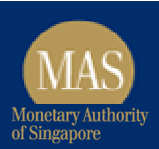Compliance
UBS Contrite Over Singapore Penalty, To Compensate Clients

The bank told this publication that the penalty "finally resolves" the matter that it had self-identified and reported to regulators in Hong Kong and Singapore.
UBS says it has drawn a
line under advisors’ deceptive actions, having been hit with a
S$12.2 million penalty by Singaporean regulators.
The Monetary
Authority of Singapore imposed the penalty on the Swiss bank
for “acts of its client advisors that contravened section 201(b)
of the Securities and Futures Act. The client advisors had
engaged in acts that deceived or were likely to deceive clients
about the spreads and/or interbank prices for transactions in
over-the-counter (OTC) bonds and structured products,” MAS said
in a statement last week.
Asked by WealthBriefingAsia for comment, UBS said: "This
finally resolves the matter that we had self-identified and
reported to the regulators in Hong Kong and Singapore. The
self-reporting included a plan to fully reimburse the affected
wealth management clients and is limited to a very small
percentage of all transactions processed through the bank's order
processing system during this period. The behaviour of the
individuals involved is unacceptable and in strong contrast to
the behavioural principles of our firm."
UBS admitted that it was liable for its client advisors' actions;
the bank will compensate all affected clients managed by UBS’
Singapore branch, the MAS statement said.
The regulator’s penalty covers transactions made from 2014
onwards in Singapore-managed accounts. However, UBS has
undertaken to compensate all affected clients for misconduct
during the period 2008 to 2017. Investigations into the
individuals involved in the misconduct continue.
“The conduct of UBS through its representatives is unacceptable
and has no place in the financial services industry where trust
and integrity are paramount. Our enforcement action and penalty
took into account that UBS has undertaken to compensate affected
clients and that the bank rendered full cooperation to MAS during
the investigation,” Ong Chong Tee, deputy managing director
(Financial Supervision), MAS, said.
Explaining what happened, the regulator said that when UBS
carried out over-the-counter transactions requested by its
clients, it did so with interbank counterparties, and its
practice was to charge a spread over the interbank price that it
obtained from the counterparty. In 2016, UBS reported to MAS that
the bank had uncovered certain malpractices in Hong Kong and
Singapore with regard to spread taking in OTC transactions.
In several cases, investigations showed that client advisors
either did not adhere to the spread or interbank price of a trade
as agreed with or understood by the client; failed to disclose or
made only partial disclosure to the client when there was a price
improvement in the interbank price of a limit order; and/or
overcharged the clients in excess of the fees set out in the
bank’s fee disclosure documents to clients.